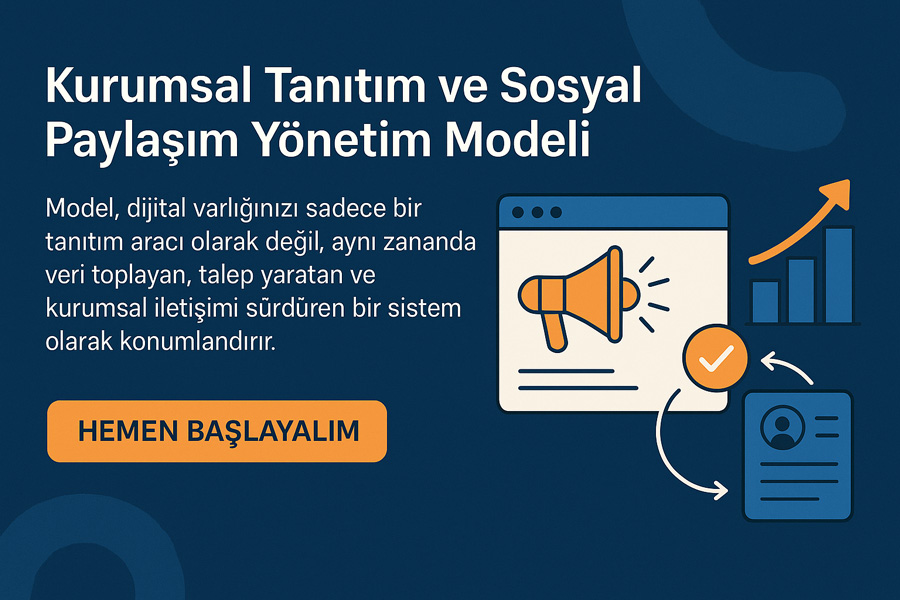Market research is one of the keys to small business growth and survival in a competitive market. So why is it so important? Market research helps you understand the needs, expectations and preferences of your business’s target audience. In the light of this information, you can shape your products and services according to your customers’ requests. Market research methods customized for small businesses can provide in-depth market understanding even with limited budgets
In the beginning, it is important to clarify your goals. What do you want to learn? Who is your target audience? What are your competitors doing? The answers to these questions will determine the direction of your research. For small businesses, methods like quantitative surveys or qualitative focus groups are great for capturing valuable consumer insights. However, every business’ needs are different; Therefore, choosing the appropriate method is critical.
During the data collection process, you can obtain valuable information through both online and offline channels. Social media analytics, customer surveys or competitive analysis provide a variety of data points to help you understand the market. 📊 This information is invaluable in understanding your customer behavior and market trends. Analyzed data allows your business to make strategic decisions and optimize marketing strategies.

Finally, it is essential to translate the findings into action. With the information obtained from market research, you can develop products that are more suitable for your target audience, run effective marketing campaigns and make strategic decisions that will differentiate your business from your competitors. By using market research results, small businesses can achieve a stronger and more competitive position in the market.
İçindekiler
ToggleMarket Research Fundamentals: Why Is It Important for Small Business
Market research serves as a compass on the journey of growth and success for small businesses.Understanding the depths of the market, gaining knowledge on the competition and discovering the expectations of your target audience, a sustainable business model are the cornerstones of creation. Therefore, market research is critical for businesses of all sizes, not just large companies.
Understanding the Target Audience
The first step in conducting market research for small businesses is to understand the target audience in detail. Knowing who your target customers are, what they want and what they value allows you to tailor your products or services to their needs. Demographic information, habits and preferences are key components of audience analysis. 🎯 This information helps businesses expand their customer base and increase customer loyalty.
Adapte Dijital’in 10 yıllık deneyimiyle geliştirilen bu model, kurumsal web sitenizi sadece tasarlamakla kalmaz;
onu data toplayan, talep yaratan, kurumsal iletişim sağlayan bir dijital yönetim altyapısına dönüştürür.
Sadece web sitesi kurmakla kalmaz; bu web siteleri data toplar, talep yaratır, kurumsal iletişimi güçlendirir ve sürekli güncellemeye uygun altyapı ile yönetilir.
Competition Analysis
Competitive analysis is another important element of market research, allowing you to determine the position of your business in the industry. Knowing your competitors and their strengths and weaknesses helps you discover gaps and opportunities in the market. This is a critical step to improve your strategic marketing plans and gain a competitive advantage. 🔍
Product and Service Development
Market research also plays a vital role in the product and service development process. Understanding customers’ real needs and expectations enables innovation and customization. Through market research, small businesses can better understand what consumers want and shape their products or services accordingly. This is important to achieve a unique position in the market and increase customer satisfaction.
Marketing Strategies and Communication
Finally, an effective marketing strategy and communications plan should be based on the information provided by market research. Knowing where your target audience is, which channels to reach, and which messages will resonate maximizes the effectiveness of your marketing efforts. Small businesses can run more focused and cost-effective marketing campaigns by using market research results. 📈
Starting Phase: Determining Goals and Objectives for Market Research
The success of market research depends on setting clear goals and objectives. Small businesses can accurately chart the direction of the research by setting specific and measurable goals in this process. This stage allows you to collect information that best suits your business needs and shape your business strategies according to this information.
Determining Goals
When starting market research, the first step is to clearly define your goals. These goals may include various objectives such as developing products, increasing market share, measuring customer satisfaction or conducting competitor analysis. Remember, the more specific your goals, the more valuable the data you collect will be to your business. 🎯 Clear goals help you define the scope of the research and make the process more efficient.
Creating Research Questions
Once you have identified your goals, it is important to formulate research questions that will help you achieve these goals. These questions form the focus of your market research and help you determine what data should be collected. Well-designed research questions allow you to obtain in-depth and meaningful results in the later analysis phase.
Selection of Data Collection Methods
After the objectives and research questions are determined, it is necessary to choose the most appropriate data collection methods. Different methods, such as surveys, focus groups, observations, or in-depth interviews, may vary depending on your goals. Choosing cost-effective and time-saving methods is especially important for small businesses. 📊
Informed Decision Making
The main purpose of market research is to enable you to make informed decisions. The data you collect based on your goals and research questions helps you make critical decisions in every aspect of your business, from marketing strategies to product development. With this information, your business can gain a stronger position in the market and gain a competitive advantage. 🚀
Adapte Dijital’in 10 yıllık deneyimiyle geliştirilen bu model, kurumsal web sitenizi kurumunuzu/markanızı anlatan, tanıtan, güven yaratan, talep oluşturan bir dijital yönetim platformuna dönüştürür.
Adapte Dijital, bu modelde bir konumlandırma ajansı olarak çalışır. Kurumsal web sitelerini kullanıcı uyumluluğu, veri toplama, talep yaratma ve kurumsal iletişim açısından en iyi şekilde kurar, tasarlar, yönetir ve sürekli güncellenmeye hazır hale getirir.

Selecting Appropriate Research Methods: Quantitative and Qualitative Approaches
When conducting market research, choosing the right method is vital to the success of the research. Quantitative and qualitative approaches offer different types of information to researchers, and each may be better suited for certain types of data collection and analysis needs. At this stage, choosing the method that best suits your goals will maximize the value and usability of the data you collect.
Quantitative Research Methods
Quantitative methods are generally based on numerical data collection and statistical analysis. Surveys, online surveys and other measurement tools are ideal for large-scale data collection and are often used to understand overall market trends, consumer preferences and behavioral patterns. Quantitative data is excellent for testing specific hypotheses and obtaining measurable results. 📊 This approach is recommended for businesses that want to get an overview of the market.
Qualitative Research Methods
Qualitative methods focus on obtaining in-depth understanding and conceptual data. Focus groups, in-depth interviews, and observation are used to gain a detailed understanding of individuals’ experiences, attitudes, and perceptions. This approach is especially ideal for businesses looking to explore new markets or understand the underlying drivers of consumer behavior. Qualitative data provides rich insights and deep understanding, but may not be as effective as quantitative data in identifying large-scale trends.
Mixed Approaches
In some cases, a mixed approach may yield the best results. This is a strategy that combines quantitative and qualitative methods, thus benefiting from both the power of numerical data and in-depth qualitative insights. Mixed methods provide broad understanding and can be customized to your research goals. This approach is often preferred for complex research questions and offers businesses a comprehensive market understanding.
Things to Consider When Choosing a Method
When choosing a research method, you should consider your goals as well as your time and budget constraints. Each method has advantages and limitations, so your choice should be the one that best suits the purpose of your research and the type of information you want to obtain. A strategic choice will maximize the value and impact of your research. 🎯
Data Collection and Analysis: Obtaining Specific Information for Your Business
One of the most critical stages of market research is data collection and analysis. This process is vital to obtaining valuable information specific to your business. Collecting the right data and analyzing it effectively allows you to make strategic decisions about how to position your business in your market. At this stage, applying quality data collection techniques and powerful analysis methodologies can directly impact the success of your business
Data Collection Techniques
Data collection forms the basis of market research. A variety of techniques, such as surveys, interviews, focus groups and observation, can be used to obtain information specific to your business. Each of these techniques offers different benefits depending on your goals. For example, surveys provide quick, measurable data from a broad demographic, while focus groups offer in-depth, qualitative insights. 📝 An effective data collection strategy can greatly improve the overall quality and accuracy of your research.
Data Analysis Methodologies
Analyzing the collected data is the next step in understanding your business’s place in the market. Methodologies such as statistical analysis can be applied for quantitative data and thematic analysis can be applied for qualitative data. These analyzes transform the collected data into usable information in your business’s strategic decision-making process. Data analysis plays a critical role in understanding market trends, customer behavior and competitor activities.
Obtaining Insights
The insights gained as a result of data analysis enable your business to better understand marketing strategies, product development and your target market. These valuable insights help your business gain a competitive advantage and establish a unique positioning in the market. An in-depth understanding of customer needs and market dynamics puts your business one step ahead of your competitors. 🚀
Decision Support Systems
Finally, it is important to integrate the collected data and the analysis results into your business’ decision support systems. This provides valuable contributions to strategic planning and management. Data-driven decision making enables your business to maximize opportunities while minimizing risks. This process strengthens your business’s position in the market and helps you take important steps towards sustainable growth.
Using Information from Market Research: Strategy Development and Implementation
The correct use of information obtained from market research is the basis for businesses to gain strategic advantage. This information guides businesses in the development of marketing strategies, product innovations, expansion of the target market and ability to compete with competitors. This process strengthens your business’s position in the market and creates the necessary foundation for long-term success. The strategy development and implementation process requires detailed planning and implementation skills.
Development of Marketing Strategies
Market research results allow your business to tailor marketing strategies to target audience. This information helps you determine which marketing channels are most effective, which messages resonate more with the consumer, and how the marketing budget should be allocated. Properly targeted and data-driven marketing campaigns lead to high conversion rates and increased customer loyalty. 🎯
Product and Service Innovation
Insights gained from market research provide the opportunity to shape your products and services according to the needs and expectations of your customers. This drives new product development and allows you to make customizations to your existing products. Customer feedback is invaluable to product innovation and development and provides unique features that differentiate your business from your competitors.
Expansion of Target Market
Market research helps your business make strategic decisions about expanding its current market or entering new markets. Demographic information, geographic data and consumer behavior analysis provide in-depth understanding of potential new markets. This information can be used to maximize market expansion opportunities while minimizing risks.
Achieving a Competitive Advantage
Information obtained from market research provides critical information about your business’s competitors. This information gives you the chance to analyze your competitors’ strengths and weaknesses, identify gaps in the market and gain a competitive advantage. Strategic planning uses this information to ensure that your business stands out in the market and turns customer preferences in its favor. 🚀
Conclusions and Recommendations
Market research is vital for businesses to understand the dynamics in their markets, discover consumer needs and behaviors, and survive in a competitive environment. This process enables your business to make strategic decisions, accurately target marketing strategies and optimize product/service offerings. Additionally, market research provides valuable insights into expanding your target market and discovering new market opportunities. An effective market research process is a critical step to achieve competitive advantage and move towards sustainable growth.
For the success of your business, it is recommended that you invest in your data collection and analysis processes and develop a comprehensive market understanding using mixed approaches as well as qualitative and quantitative research methods. In this process, it is important to clearly determine your goals, choose appropriate research methods and use the collected data effectively in your strategic decision-making processes. Market research allows you not only to analyze the current situation but also to predict future trends.
The effectiveness and success of market research depends on the accuracy of the methods used, the rigor of the analysis processes and how the information obtained is strategically applied. Therefore, businesses need to plan and implement these processes carefully. Additionally, adopting a continuous improvement and learning approach will enable your business to grow stronger over time and adapt to changing market conditions.
In this process, working with an experienced digital consultancy agency such as Adapte Digital can make your business’s market research process more efficient and effective. Adapte Digital adds value to its customers with in-depth market knowledge, sectoral expertise and innovative approaches. By taking advantage of Adapte Digital’s expertise as a reliable partner in meeting your business’s market research needs and achieving strategic goals, you can strengthen your position in your market and achieve sustainable success.



















































